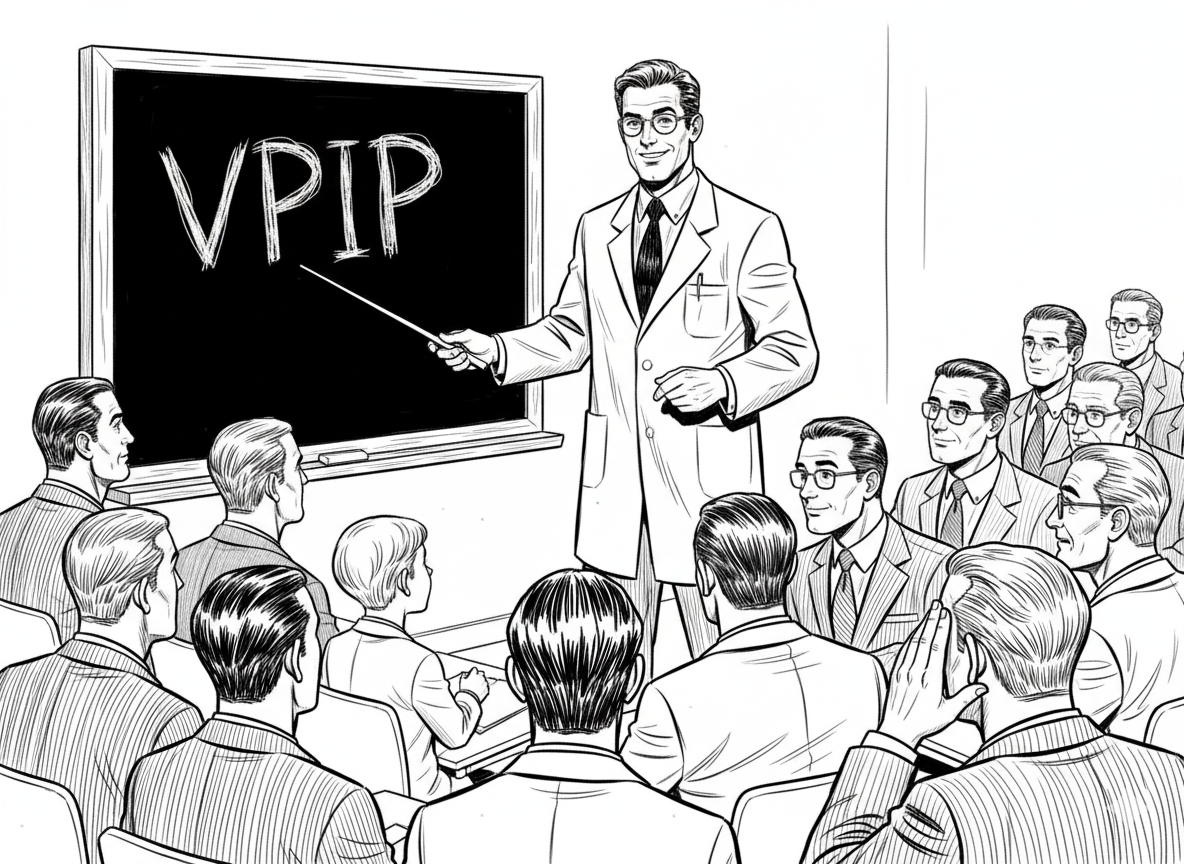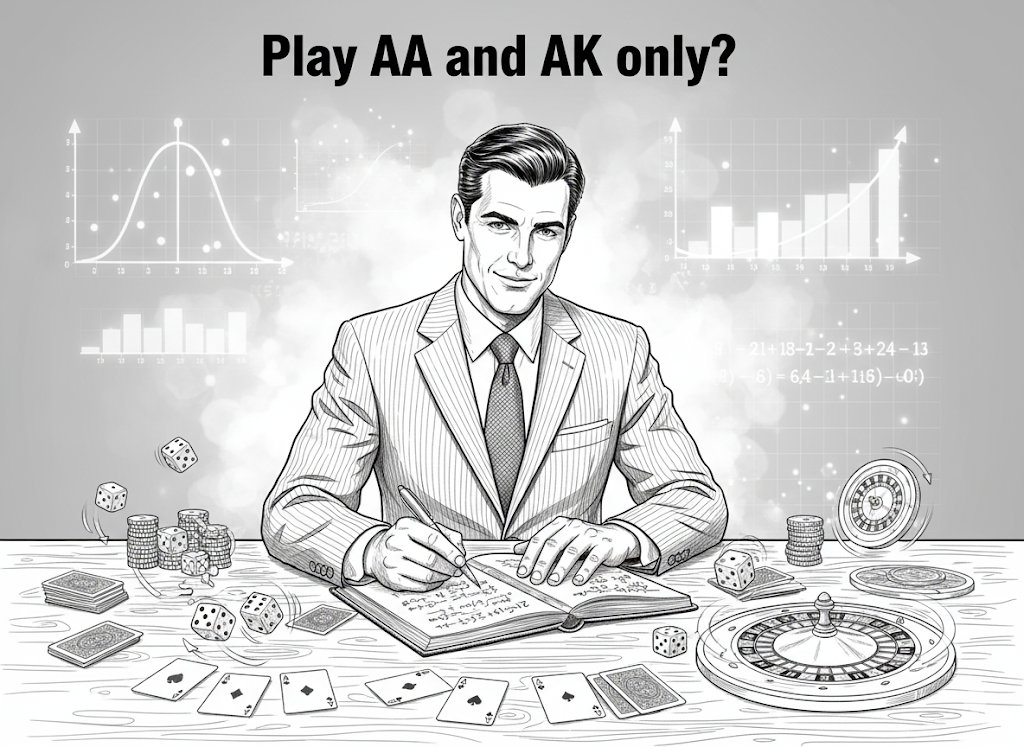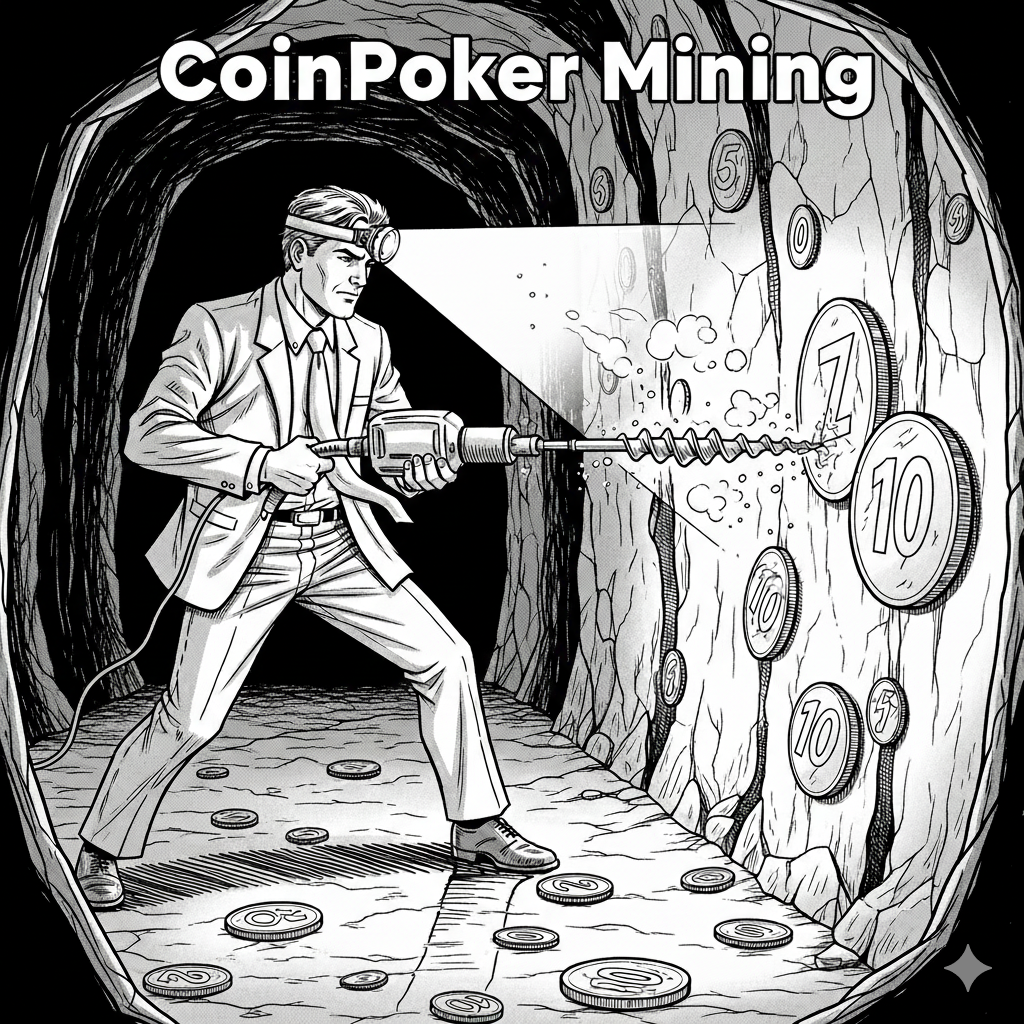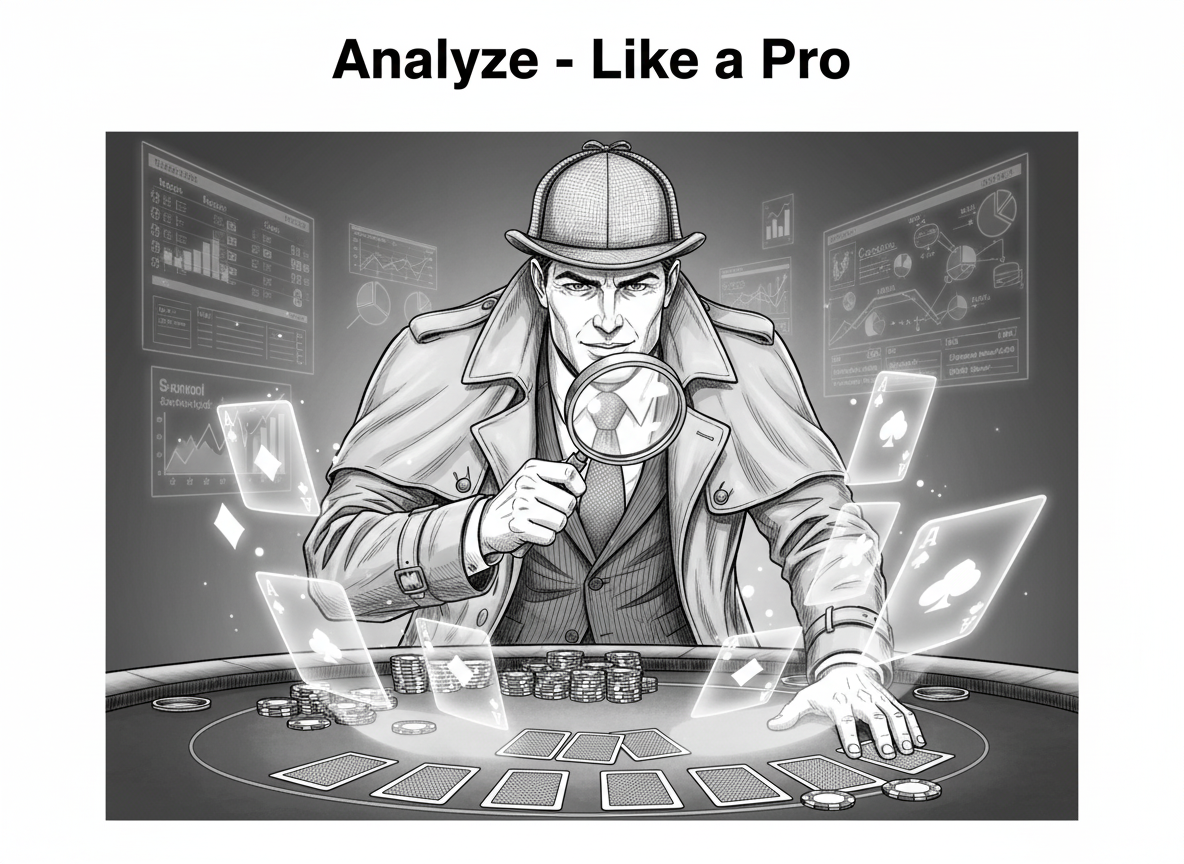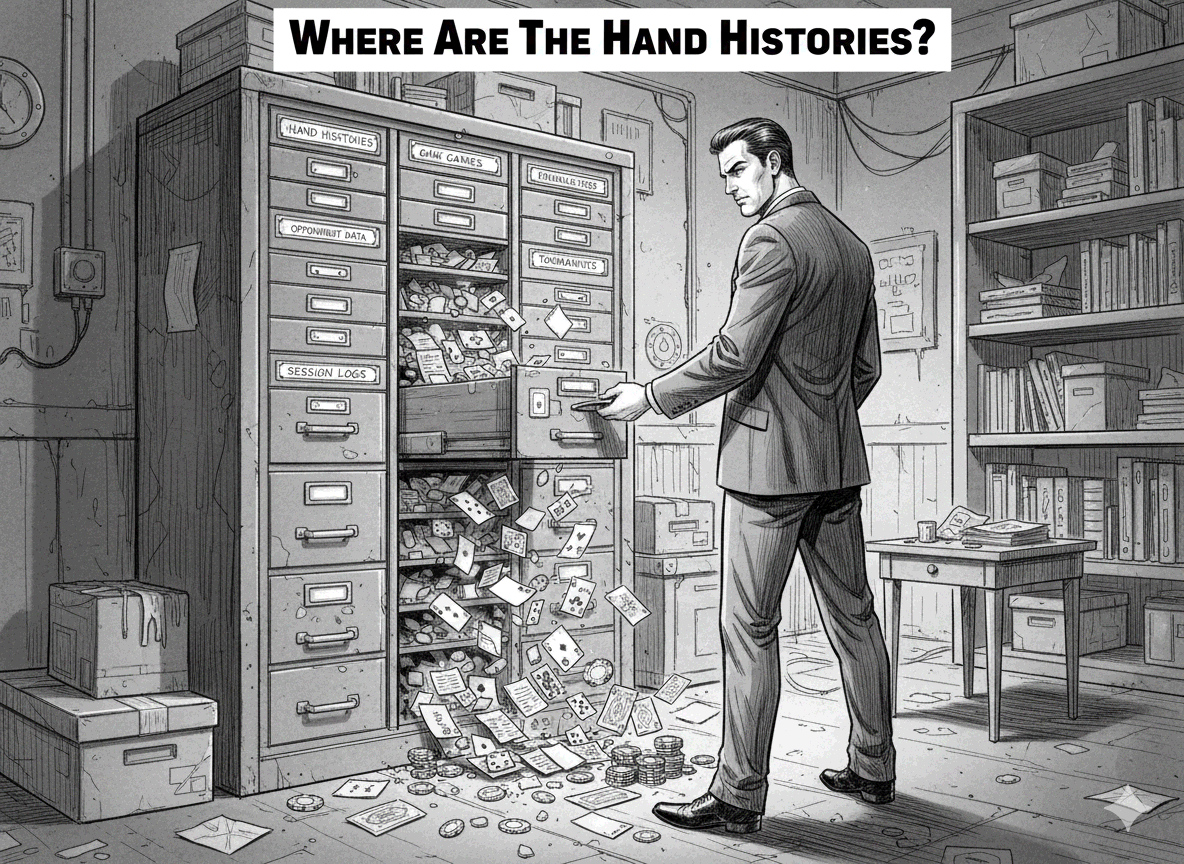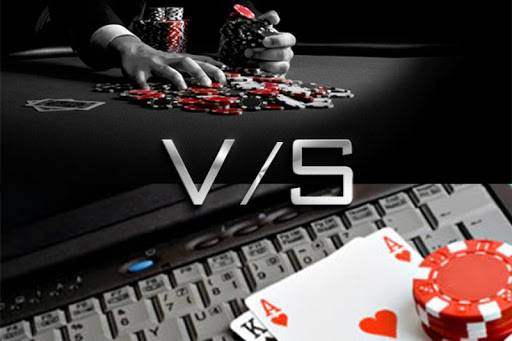Buying Hand Histories & Poker Mining: The Biggest Edge in Online Poker

From Guesswork to Data Warfare: Poker Mining
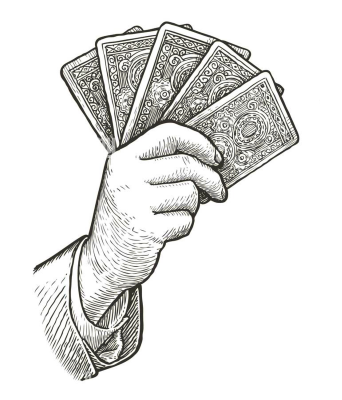
Online poker is a battleground of information. Fifteen years ago, raw talent and a basic grasp of fundamentals could turn almost anyone into a winner. Games were soft, few players studied deeply, and most decisions came down to instinct.
Fast forward to 2025, and the landscape is unrecognizable. Players study solvers, watch advanced theory videos, and drill their ranges. The “easy money” has thinned. The average regular is tougher, more disciplined, and more technically sound than ever before.

So where do the real edges still come from? Not from knowing what GTO says on the turn in a 3-bet pot. Everyone has access to that. The edge comes from information asymmetry—knowing how your actual opponents deviate from theory, and exploiting those deviations ruthlessly.
This is why serious grinders turn to poker mining and hand histories. Instead of starting blind, they sit down with the most valuable resource in poker: data. Datamining poker hands transforms guesswork into certainty, giving players a roadmap of their opponents’ weaknesses before a single hand is played.
Here are 10 Points why poker mining and hand histories are the biggest edge in online Poker today:
1. Starting With Reads Instead of Paying Tuition
Imagine walking into a live poker game and, before you sit down, someone hands you a cheat sheet: “Seat 3 calls too wide preflop, Seat 5 bluffs rivers too much, Seat 8 only raises with monsters.” That’s what purchased hand histories are in the online world.

If you don’t buy hand histories and use our poker mining service, you pay what’s known as the tuition tax. You spend weeks collecting hands, slowly piecing together who’s aggressive, who’s nitty, who folds too much, and who doesn’t. During that period, you’re bleeding EV—making mistakes, guessing wrong in big pots, and effectively paying for your education in lost chips.
With preloaded histories from our poker mining, you skip all that. You open your HUD and instantly see thousands of hands’ worth of data. No tuition. No paying for lessons with your bankroll. Just immediate clarity.
2. The Power of Population Tendencies

Poker theory teaches us how balanced strategies look in a vacuum. But players are not solvers—they’re human, and humans have patterns.
Poker mining and datamined hand histories don’t just tell you how one opponent plays—they reveal how the entire player pool behaves. Maybe you notice that at $50NL, players rarely check-raise the flop without strong hands. Or that at $200NL, regs 4-bet way too aggressively from the small blind compared to theory.
These insights are priceless. You’re not just reacting to what you see in real time—you’re walking in with a tailored game plan based on actual data. Your “default strategy” is already optimized to exploit the pool’s weaknesses.
It’s the difference between showing up to a boxing match and swinging blindly, versus stepping into the ring already knowing your opponent drops their left shoulder every time they throw a jab.
3. HUDs Become Deadly With Real Data

Every online grinder uses a HUD (Heads-Up Display). But here’s the dirty secret: a HUD with a small sample size is worse than useless—it misleads. Seeing someone with a 50% VPIP after 20 hands tells you nothing. They could be a nit running hot or a whale who plays every pot.
The real magic happens when your HUD is fueled by thousands of hands from our poker mining service. Suddenly, those VPIP and PFR stats stabilize into the truth. You see not only that someone 3-bets 8%—you see where they do it too much (cutoff vs button) or too little (big blind vs small blind).
That’s where decisions get razor-sharp. You’re no longer thinking, “I think this reg is aggressive.” You’re thinking, “This reg only double barrels 31% of the time in this spot. That means my float has positive EV.” That level of precision only comes from massive datasets—and bought histories provide them instantly.
4. Game Selection as an Invisible Winrate Boost

Poker isn’t just about what hands you play. It’s about where you play them. Smart players understand that game selection is winrate. A mediocre player at a soft table can beat a strong player battling regs.
Poker mining and hand histories are a cheat code for table selection. With datamined hand histories, you know exactly which regs are tough and which ones are hemorrhaging chips. You can avoid the sharks and hunt the fish.
Over thousands of sessions, this makes a massive difference. Even if you only increase your average winrate by 1-2bb/100 through smarter table selection, that compounds into thousands of dollars. And unlike trying to play better in every single spot, this edge costs you zero energy—it comes from making the right lobby choices before the cards are even dealt.
5. Skipping the Pain of Moving Up
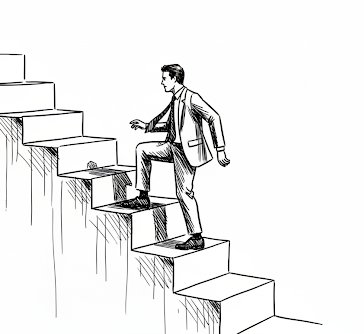
Moving up in stakes is one of the riskiest transitions in poker. You’re suddenly facing tougher players, sharper strategies, and pools with very different tendencies. The learning curve is expensive: you pay for it with losses.
But with datamined hand histories, you sidestep the pain. Before you ever sit at $200NL, you’ve already reviewed thousands of hands from that stake. You know the frequencies, the leaks, the population errors.
Instead of donating while you learn, you arrive armed and dangerous. This is how pros climb limits without stalling or burning through their bankrolls—they buy the data first.
6. Studying With a Wider Lens

Most players study by reviewing their own hands: the spots they lost, the tough folds, the questionable bluffs. This is useful, but narrow.
Now imagine reviewing your own hands plus hundreds of thousands of hands from the same player pool. You’re no longer limited to your perspective—you’re seeing the entire game environment.
You can analyze how often the population check-raises a particular flop texture, how often they over-bluff certain turns, or how rarely they defend their big blind against small opens. Suddenly, your study sessions aren’t just about fixing your leaks—they’re about building a counter-strategy to the entire pool.
That’s how good players become great: by shifting from reactive learning (“What did I do wrong?”) to proactive learning (“What does everyone else do wrong, and how can I punish it?”). But you need huge amounts of hand histories to conduct such studies, which is impossible without our poker mining.
7. Exploits Hidden in Plain Sight

Every poker player has tendencies that deviate from theory. Some are obvious: the guy who limps too much or the reg who never 3-bets. But many are subtle, buried in frequencies you’d never spot without poker mining and hand histories.
Hand histories dig those tendencies out. You might discover that a “solid” reg continuation bets 90% of the time but gives up on most turns. Or that another reg never 5-bets light, meaning you can fold comfortably to their aggression.
These small imbalances become your private goldmine. While others see only “tough regs,” you see exploitable leaks shining like neon signs.
8. Confidence in Marginal Spots

Poker’s biggest money swings happen in the gray areas: calling down on scary rivers, deciding whether to triple barrel, pulling the trigger on a bluff-catch. Without data, these decisions feel like coin flips.
With hand histories, they become clear. You know the numbers. You know this reg only bluffs missed draws 22% of the time in that line. You know their fold-to-river-c-bet frequency is 60%. You’re not guessing—you’re executing based on real-world frequencies. You can obtain such valuable key information with the purchase of hand histories at our poker mining service: hhDealer.
This confidence is game-changing. It reduces tilt, sharpens your mental game, and makes you unshakable in the toughest moments.
9. Beating Regulars, Not Just Recreational Players

Recreational players aren’t the challenge. They lose naturally. The real money in online poker comes from outplaying other regulars, because that’s where most of your volume lies.
And here’s the truth: without data, regulars are very hard to beat. They’ve studied theory, they know the basics, and they plug obvious leaks. To gain an edge, you need to go deeper—spotting subtle frequency errors and pattern deviations.
That’s exactly what poker datamining and hand histories give you. They expose the cracks in otherwise solid-looking strategies, giving you the tools to grind out EV where others can’t.
10. The Compounding Advantage

Edges in poker are cumulative. One better decision here, another there—it doesn’t seem like much. But stretched across hundreds of thousands of hands, the difference between a small edge and no edge is enormous.
Buying hand histories is like turning up your winrate dial a notch. At first, you might not notice. But six months later, your bankroll graph tells the story. You’re ahead not because of one big score, but because of thousands of tiny, data-driven edges that compound over time.
This is why pros swear by purchased hand histories. It’s not about instant results—it’s about building a long-term, sustainable edge that never stops paying dividends.
Conclusion: The Smartest Shortcut in Poker

Poker is a game of incomplete information. Every chip you win comes from making better decisions with limited knowledge. The players with the most accurate reads—on individuals, on pools, on tendencies—are the ones who rise above the rest.
Poker mining and hand histories give you those reads before you even play a hand. They let you skip tuition, exploit population leaks, weaponize your HUD, select the best tables, and attack regulars with surgical precision.
In a game where every edge matters, this isn’t just a minor tool—it’s one of the biggest shortcuts to profitability that online poker still offers.
And while others grind blind, you’ll be sitting down with the one thing that matters most in poker: better information than everyone else at the table.


